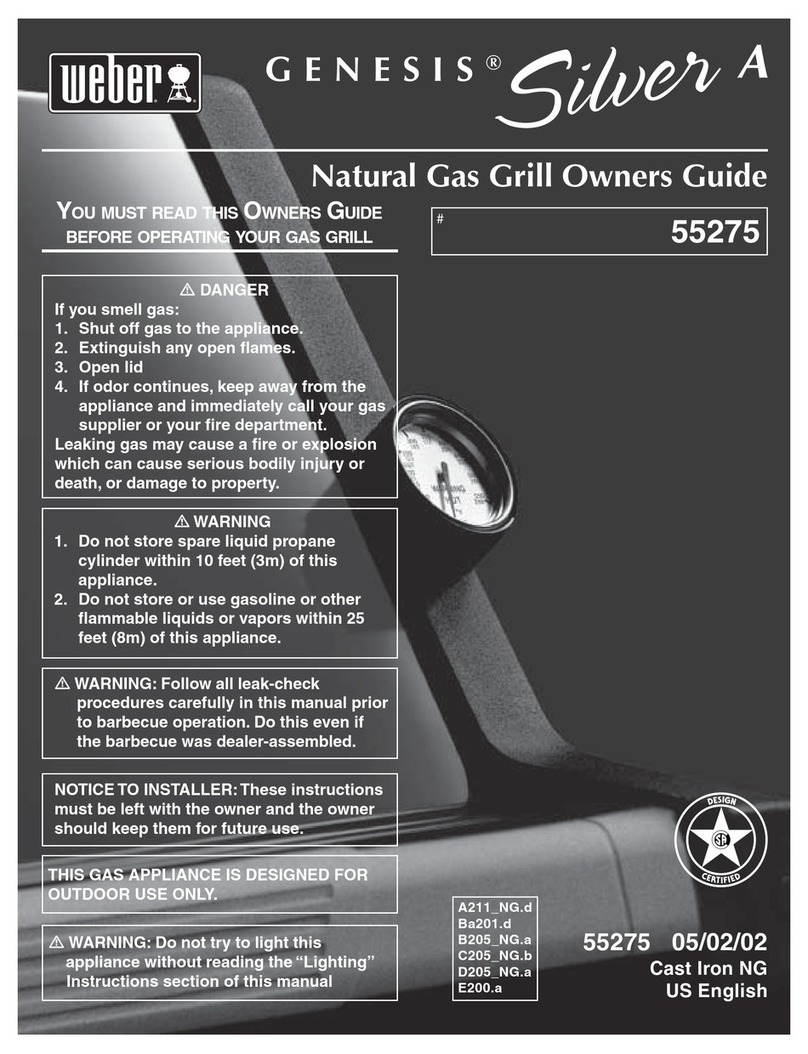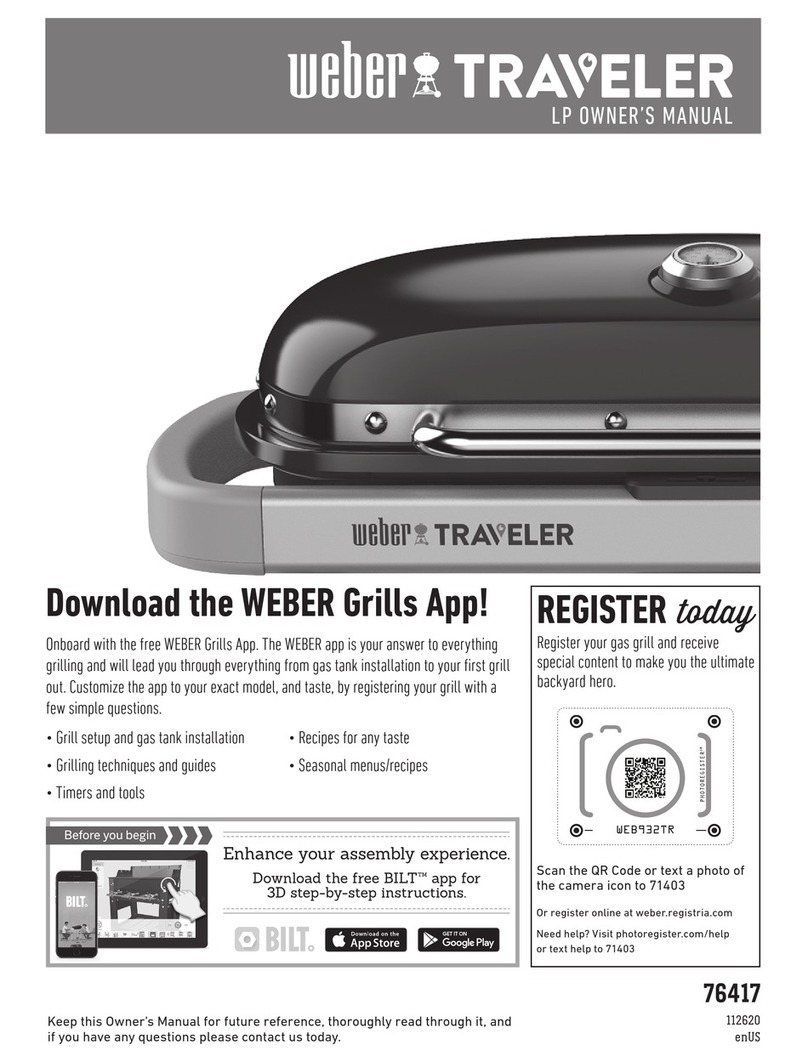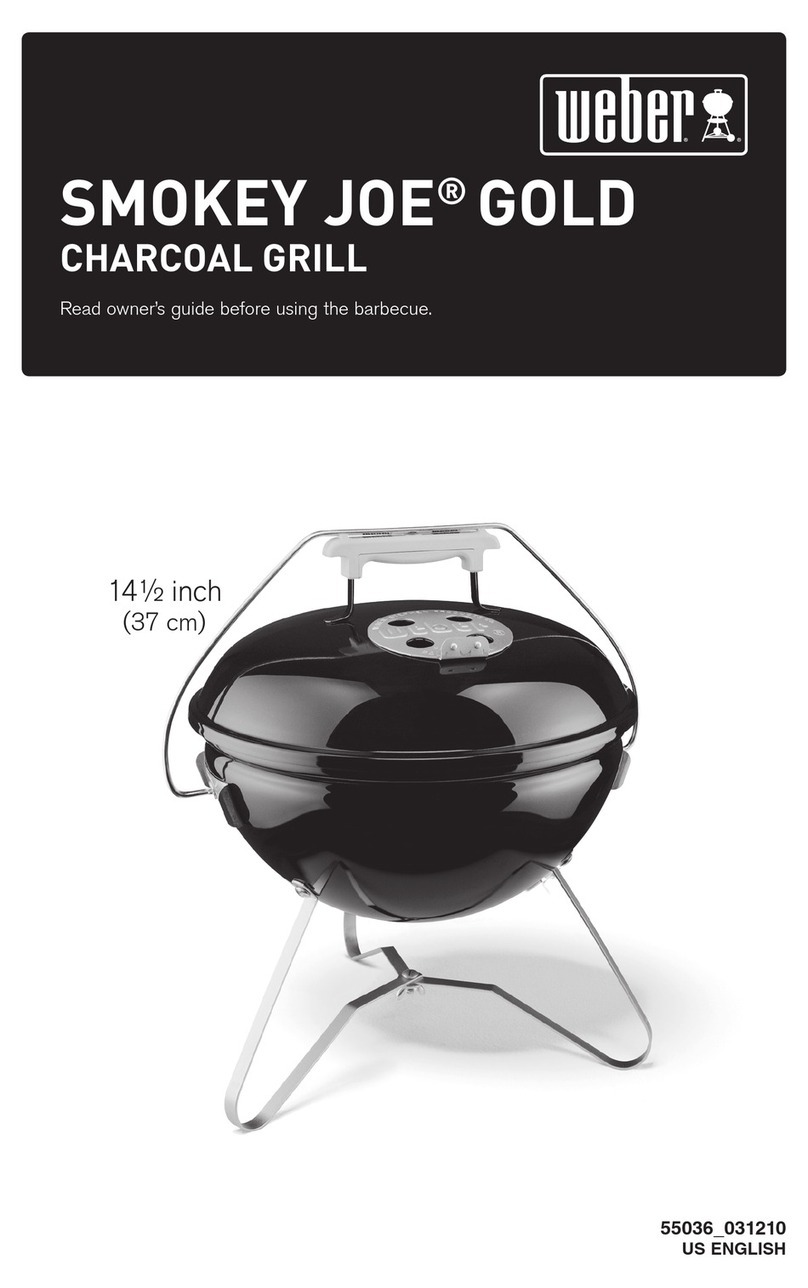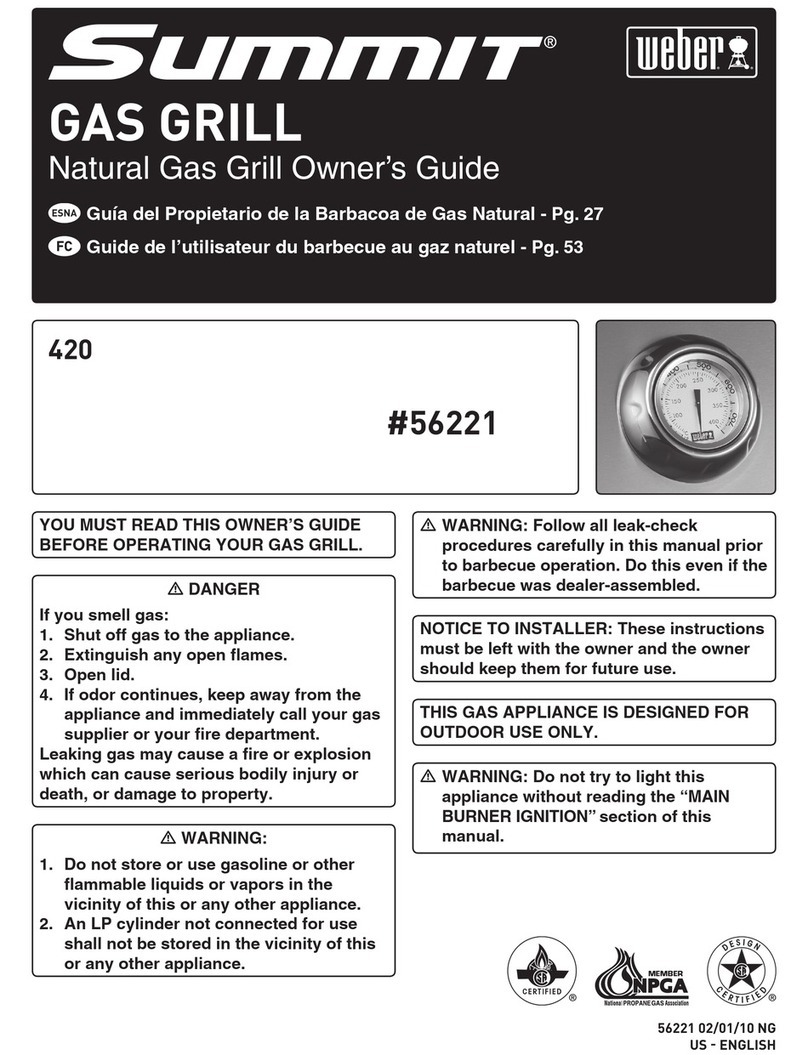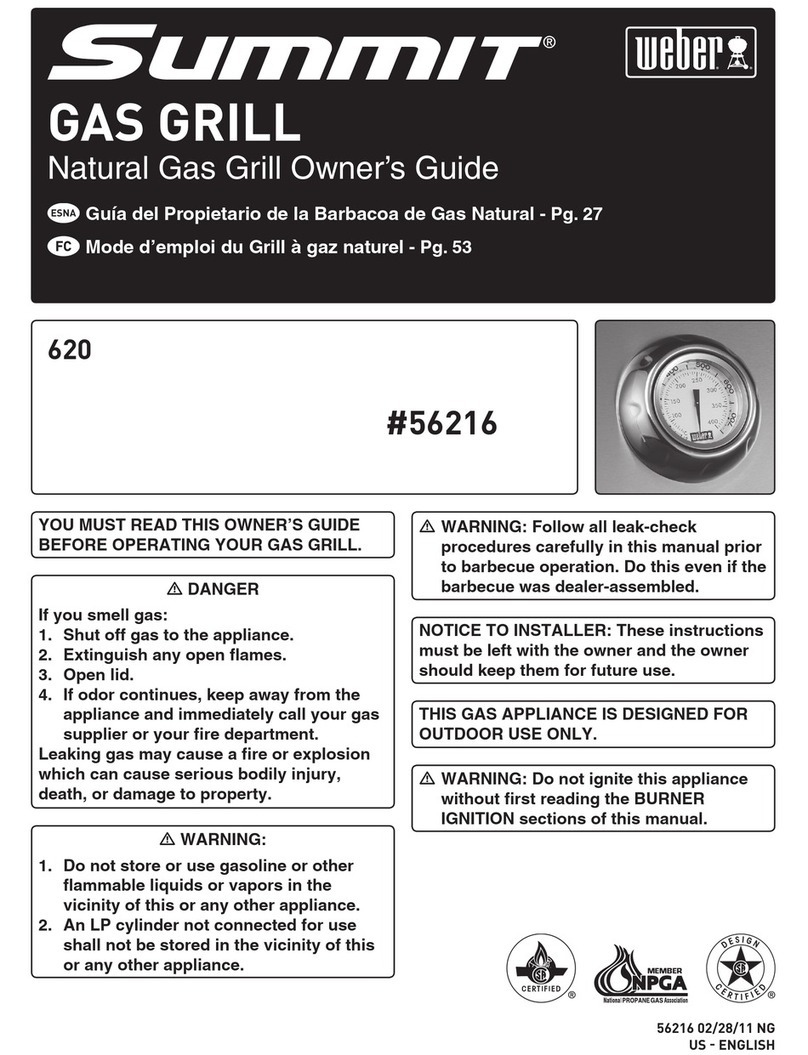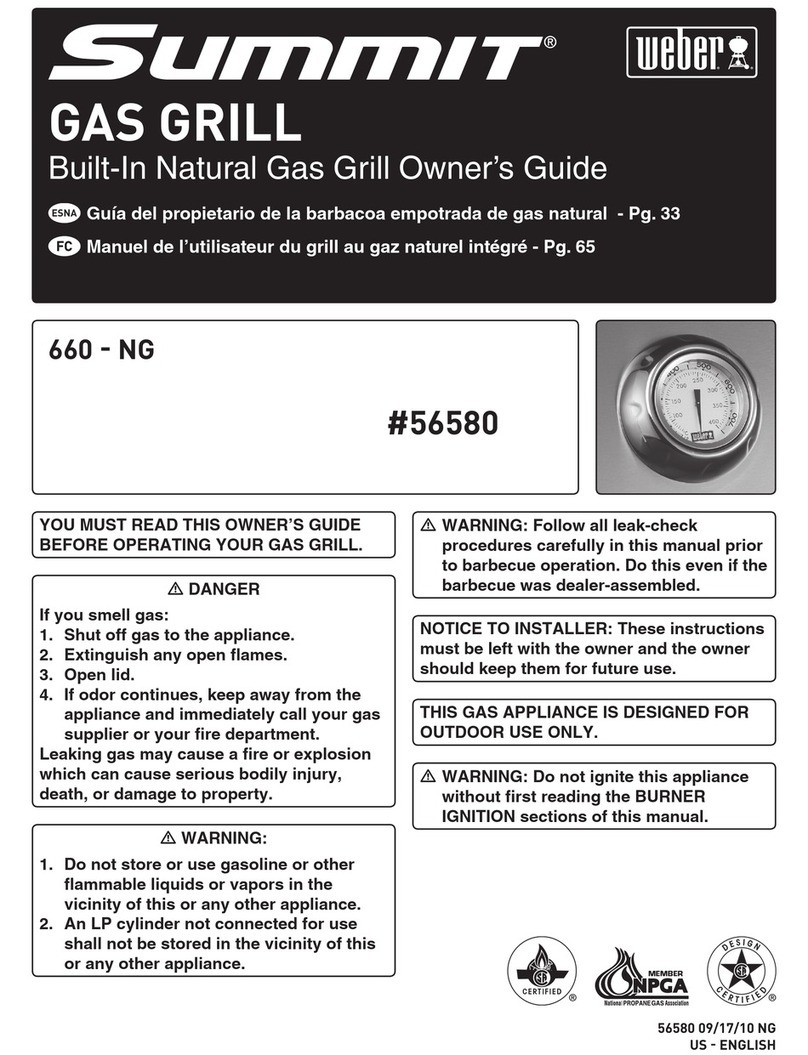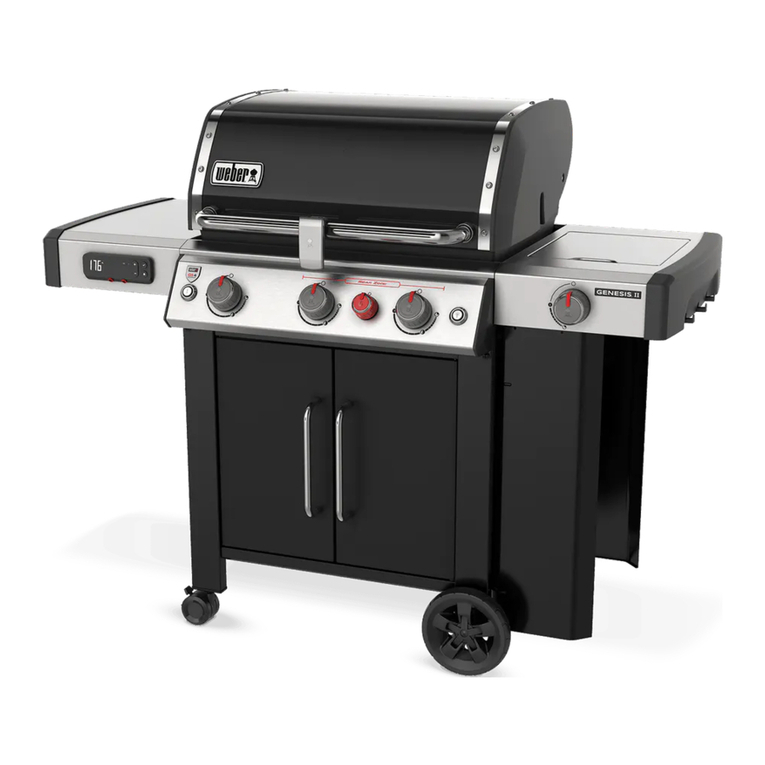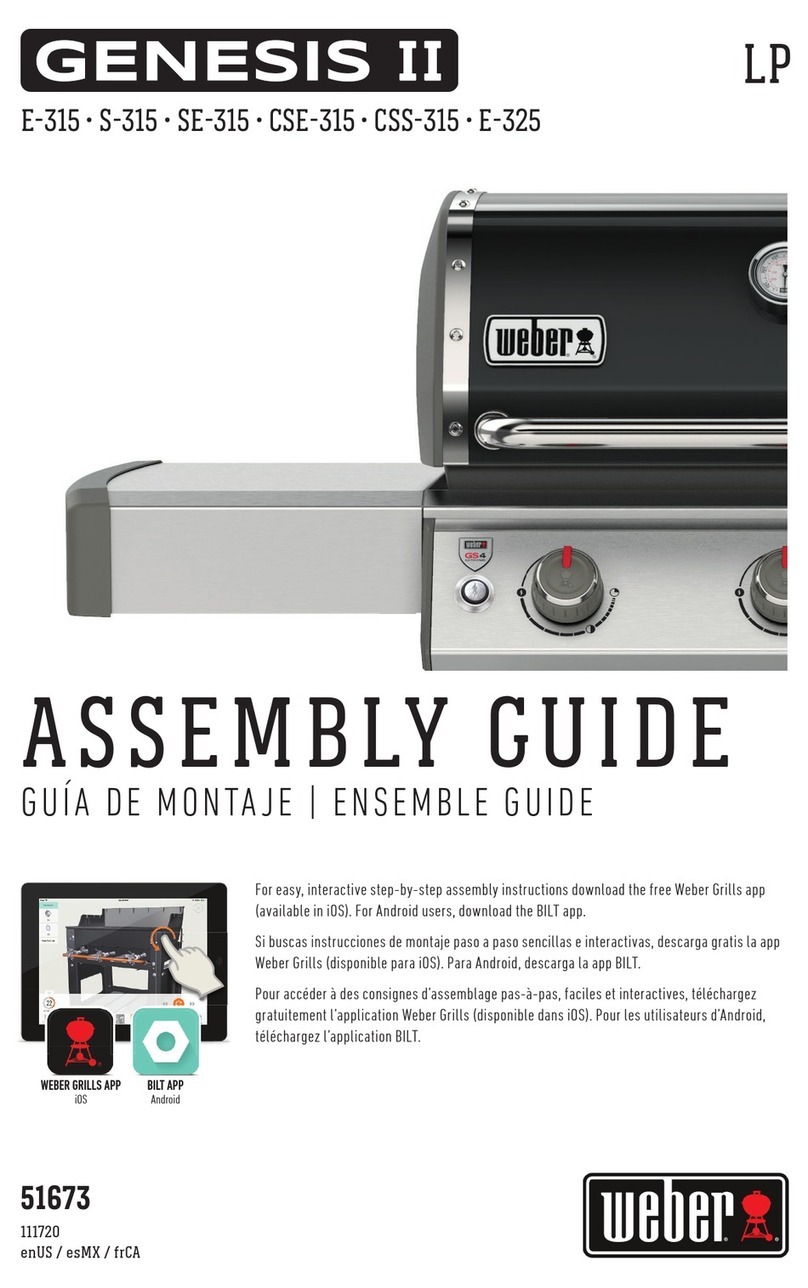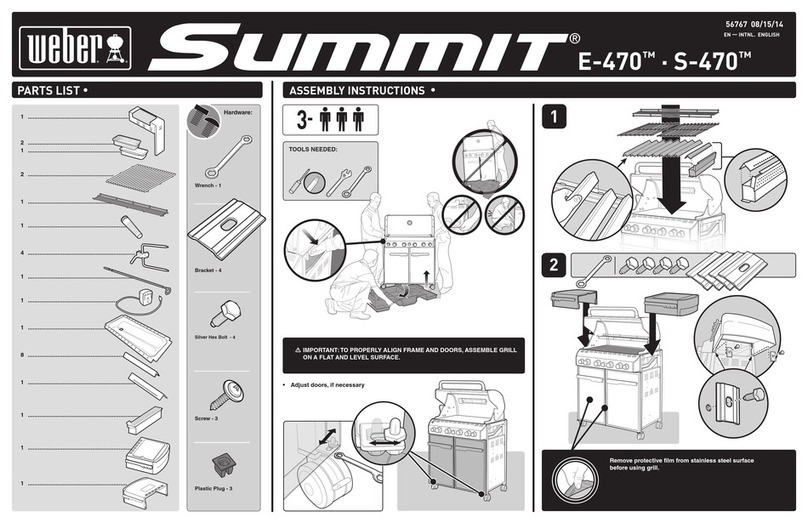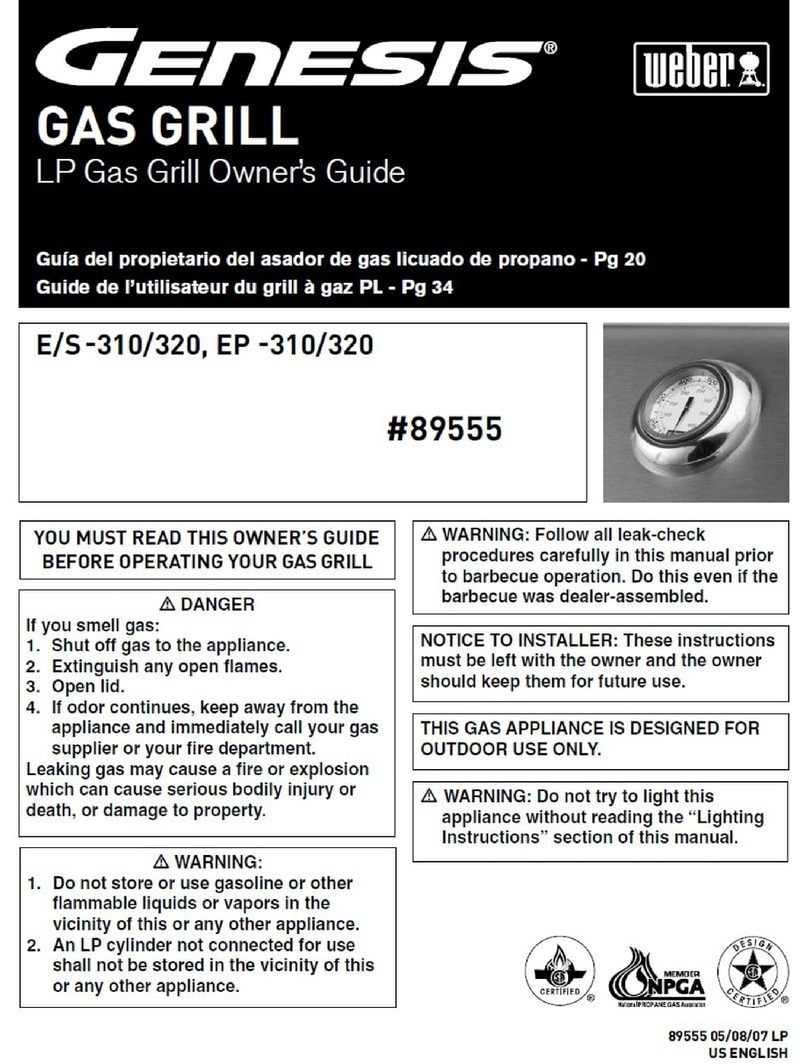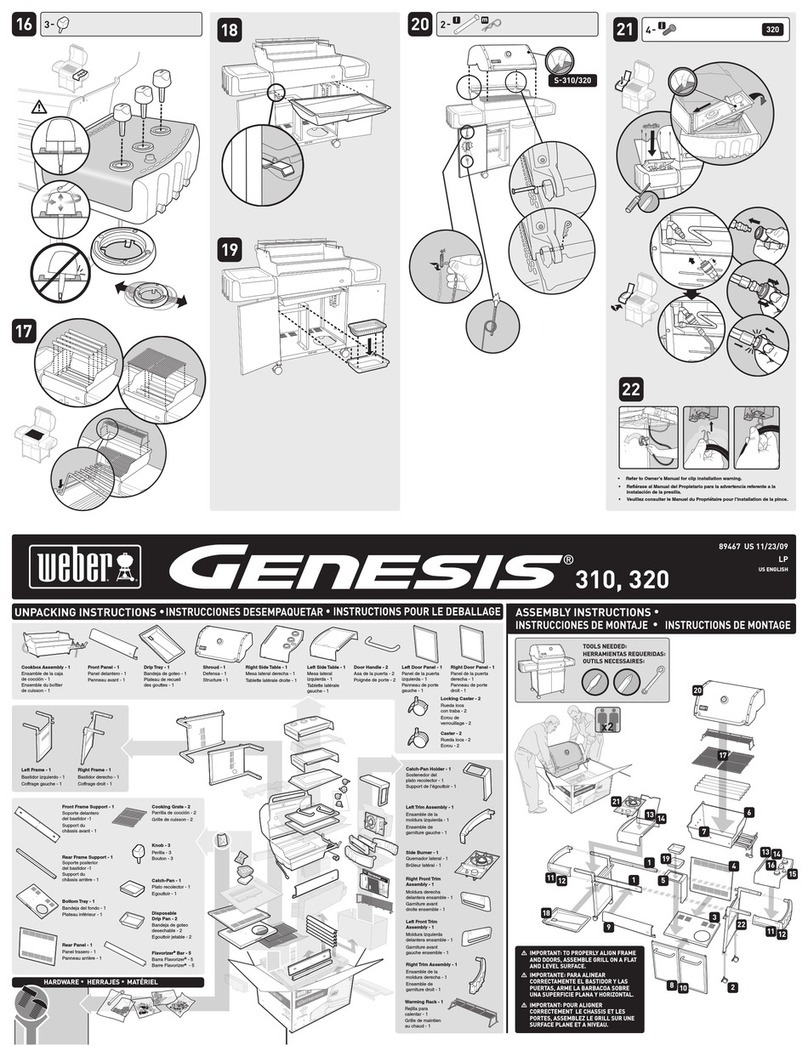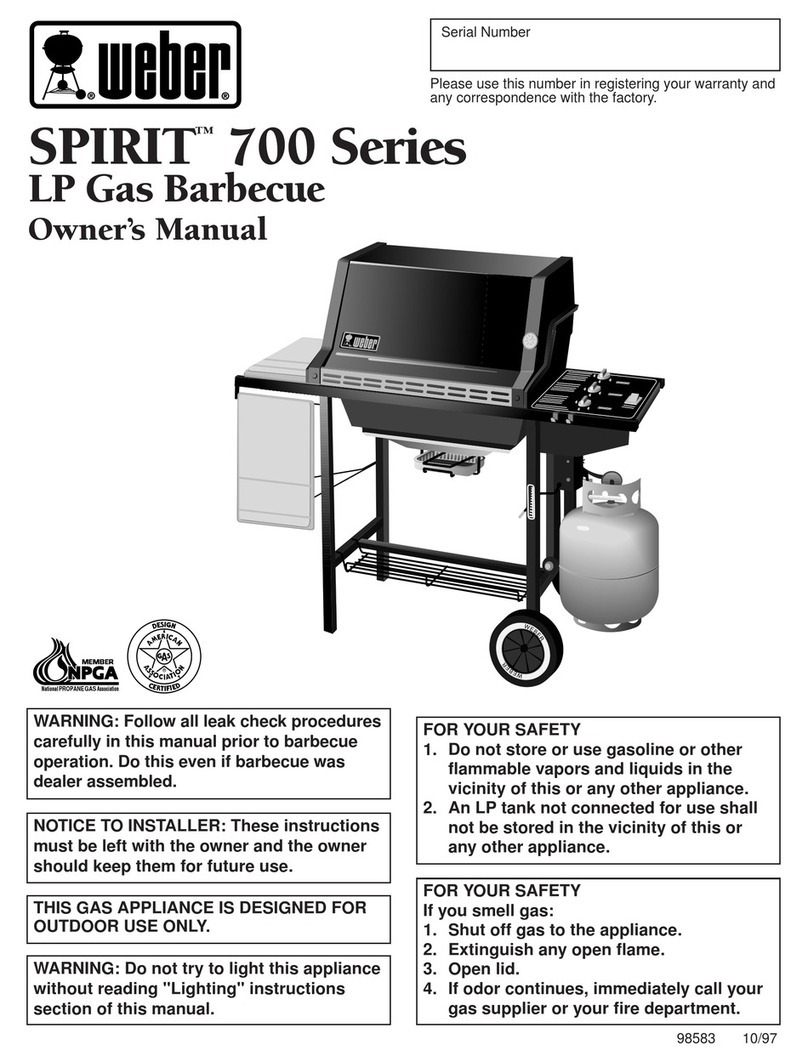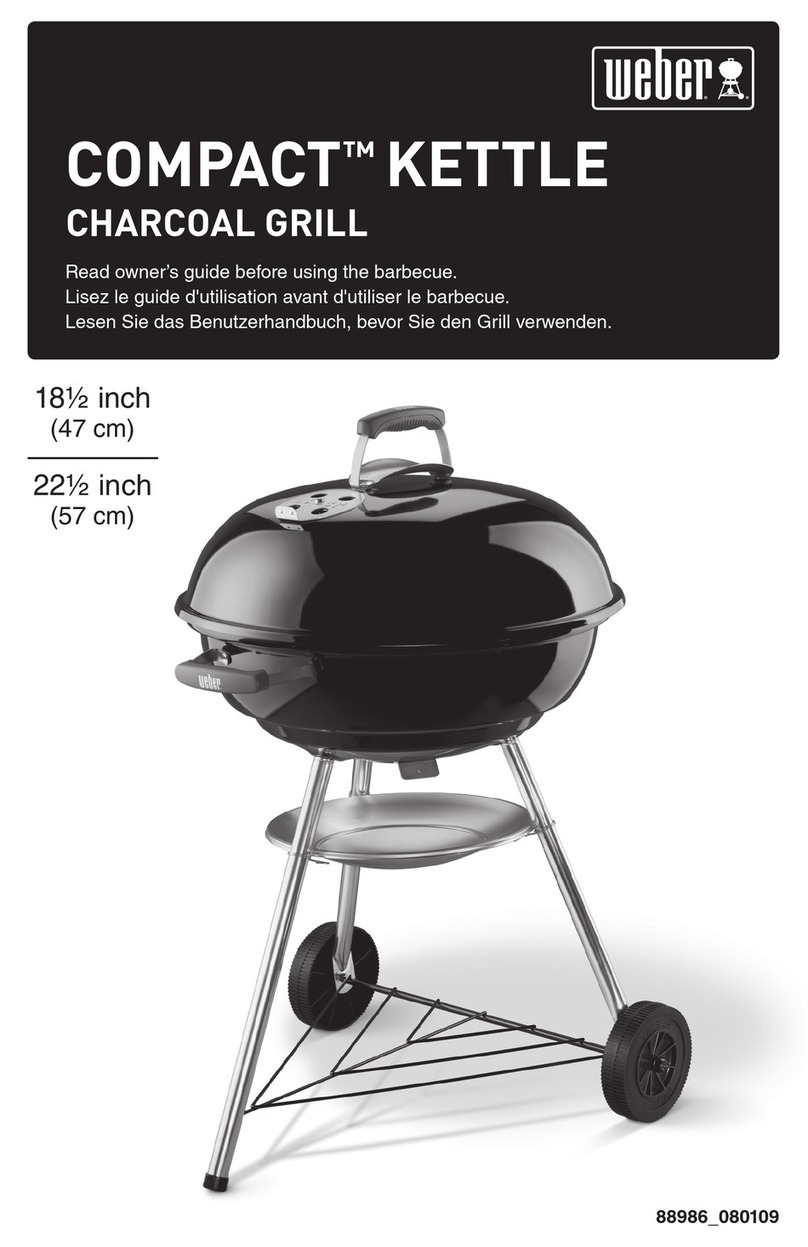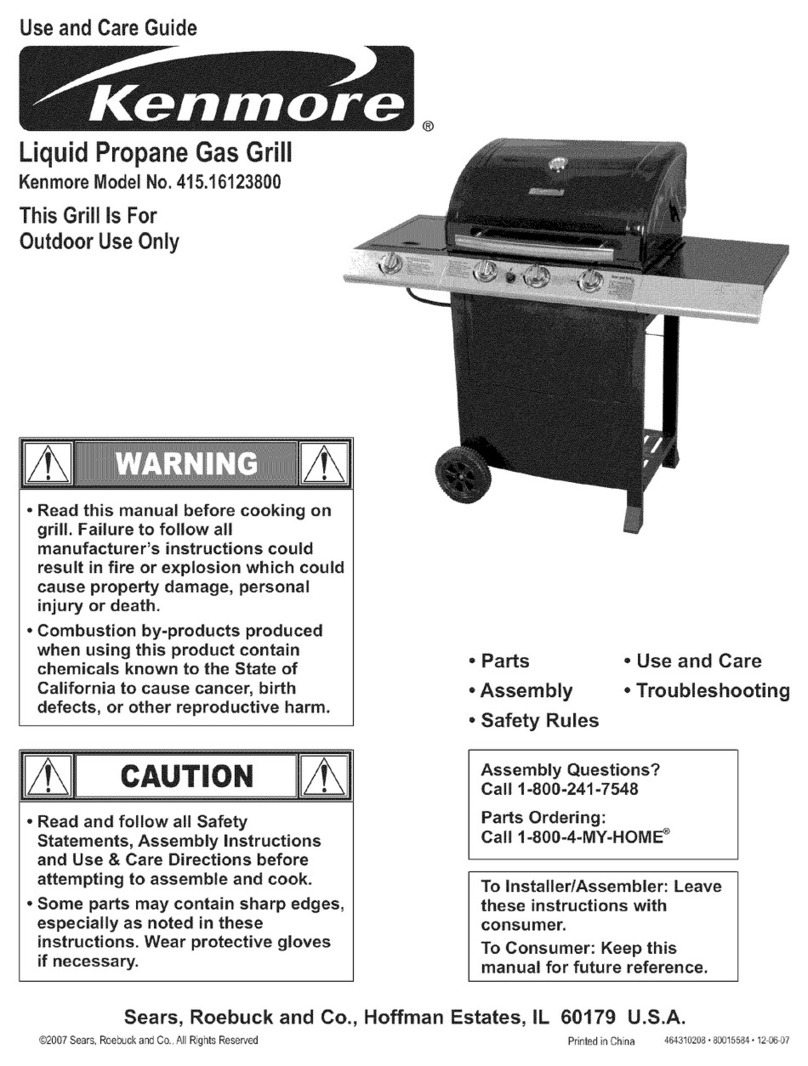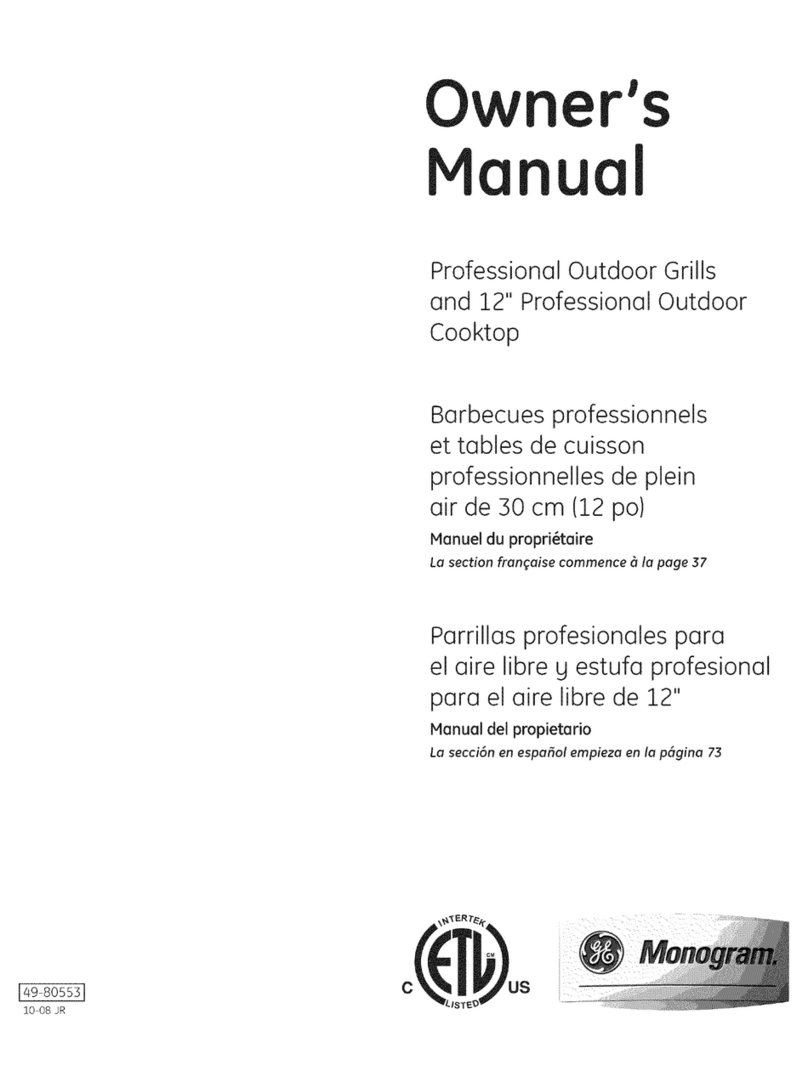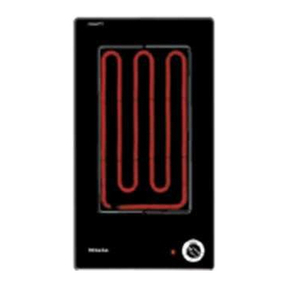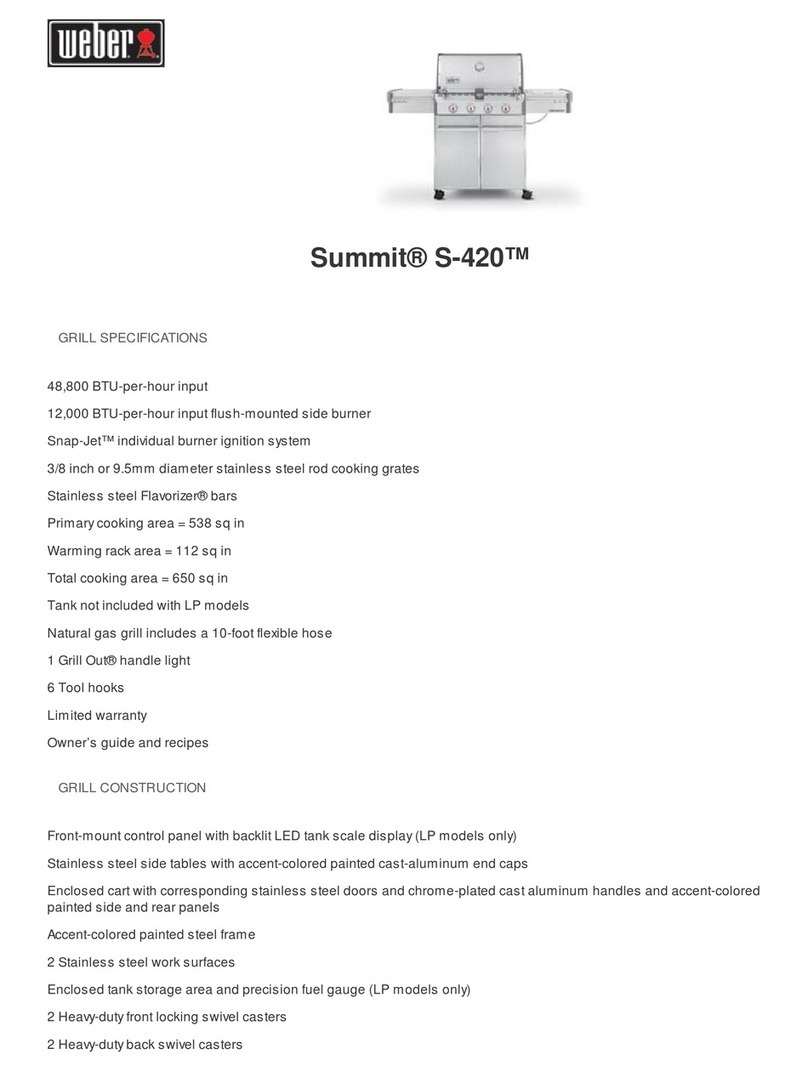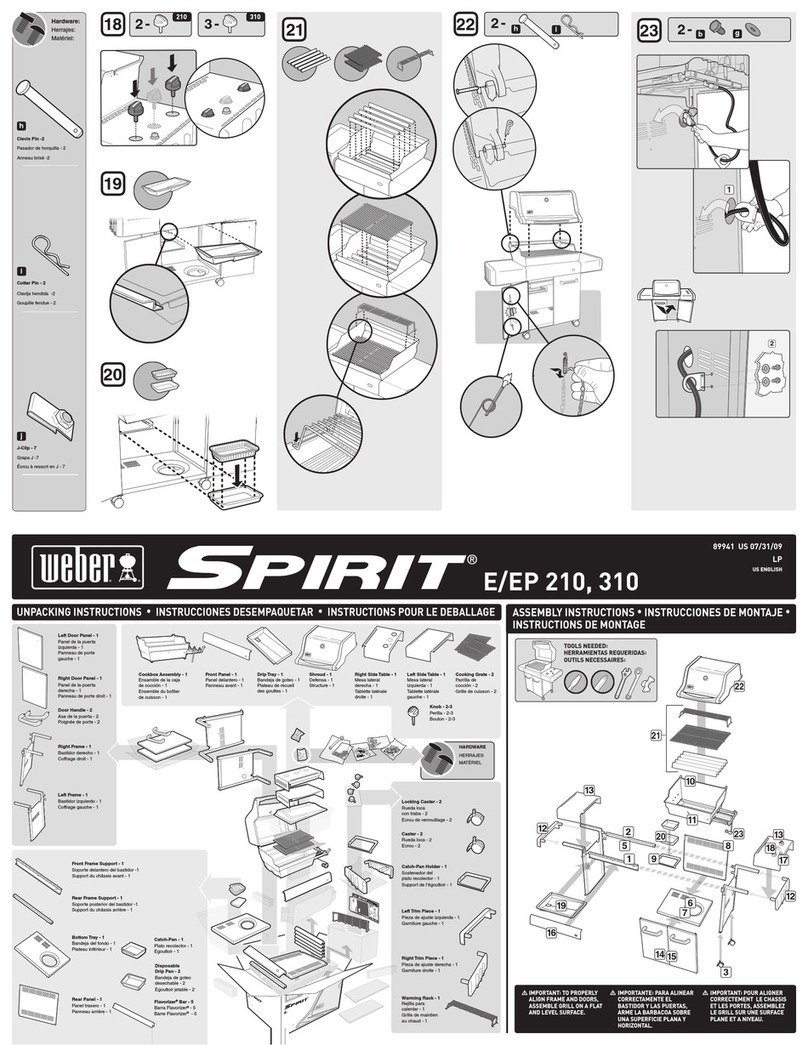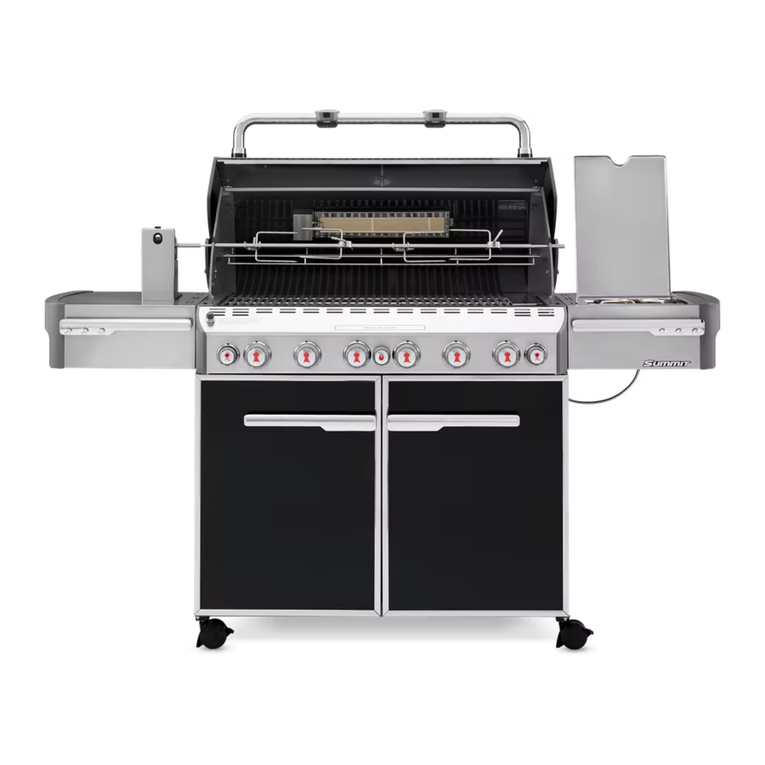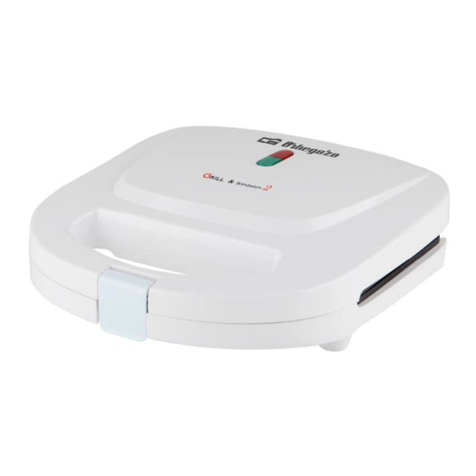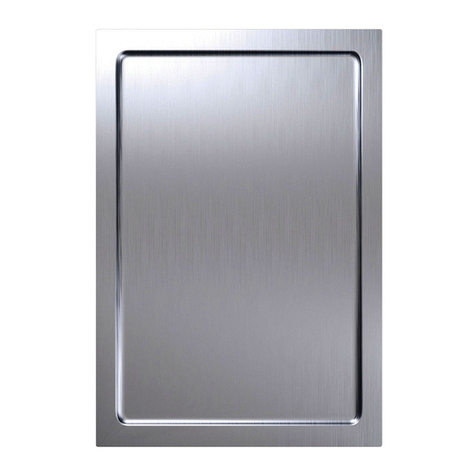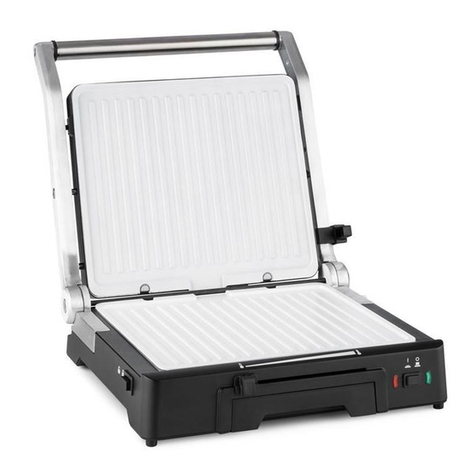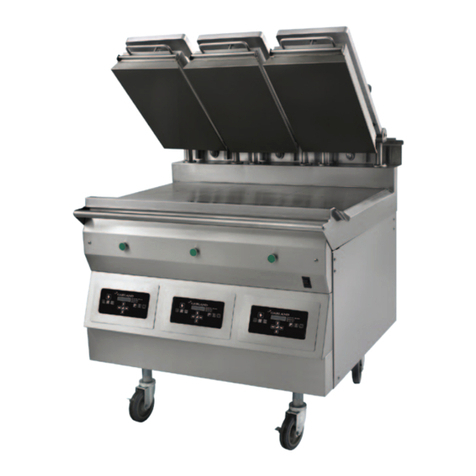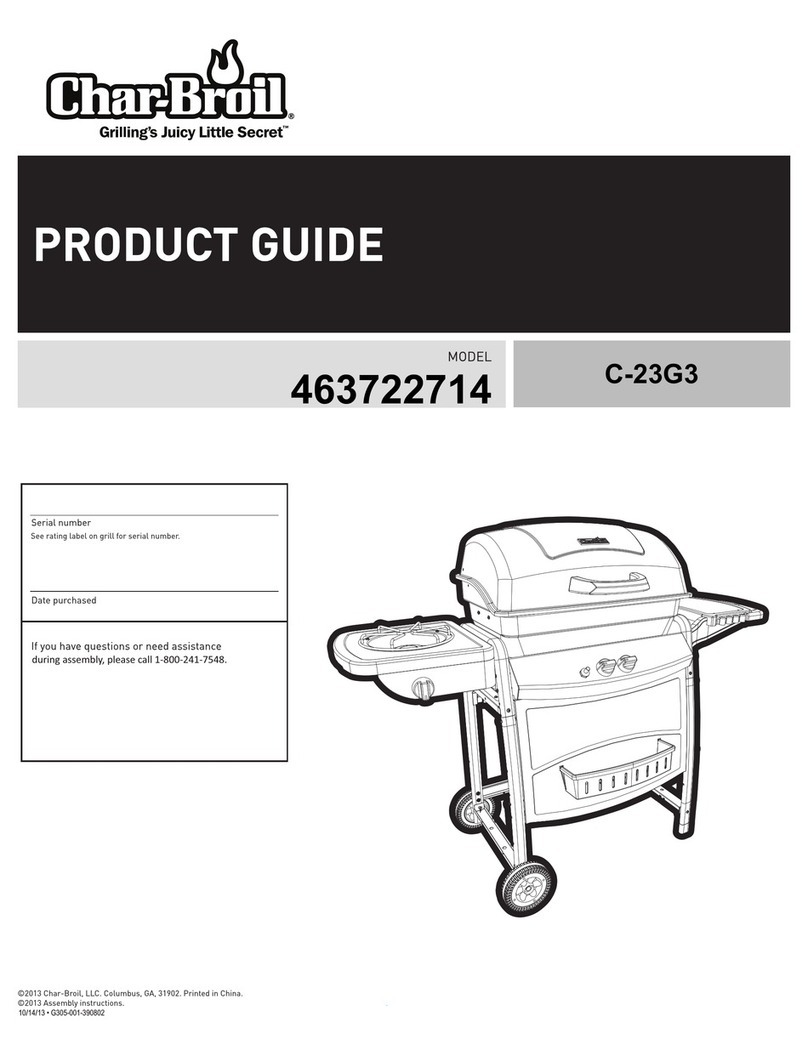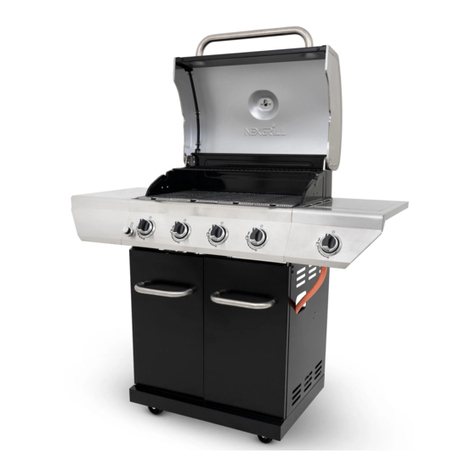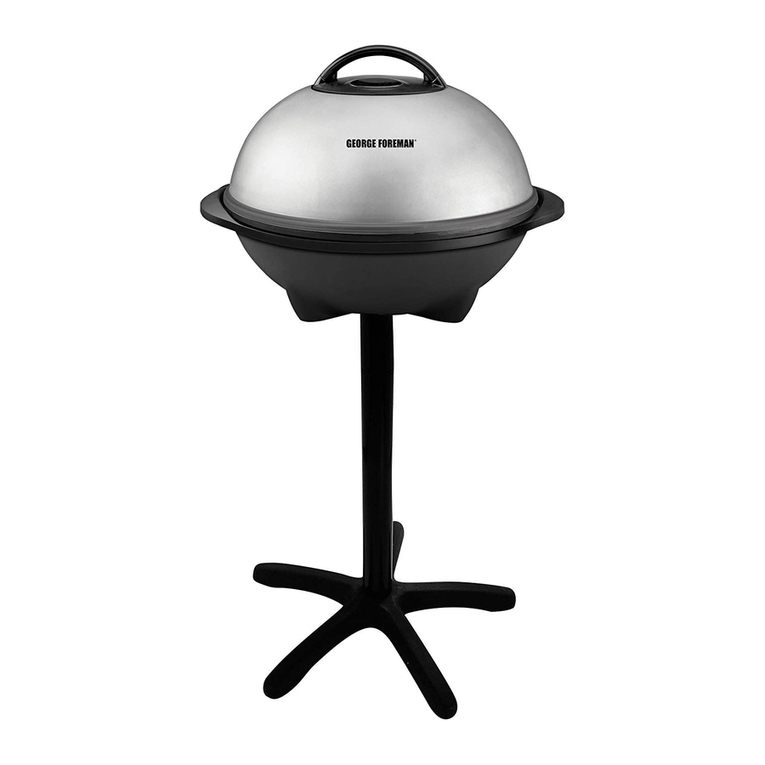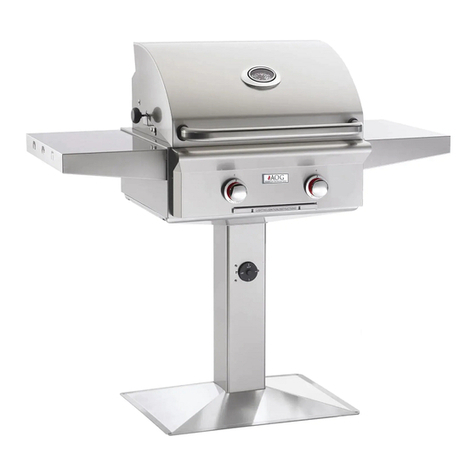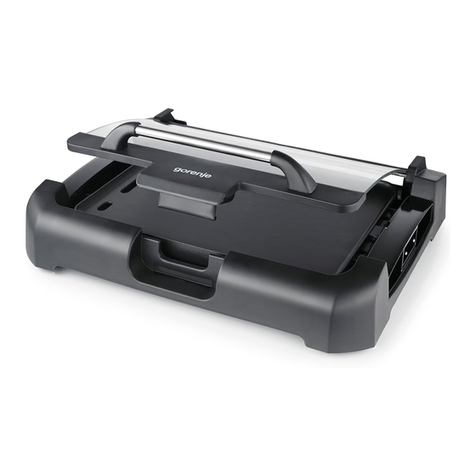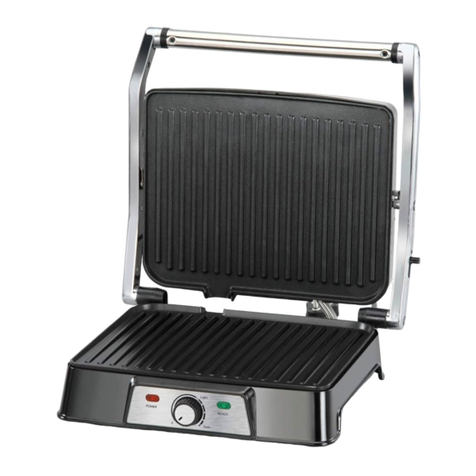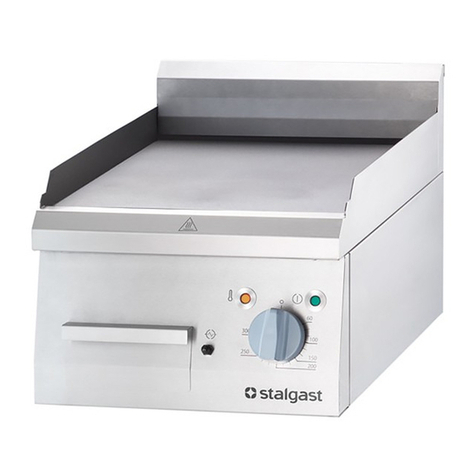
4
The WEBER Promise
PROTECT
YOUR
INVESTMENT
Shield your barbecue from the
elements with a heavy-duty
premiumbarbecue cover.
Thank you for purchasing a WEBER product.
Weber-Stephen Products LLC, 1415 S. Roselle Road,
Palatine, Illinois 60067 and its International Business
Units (listed at the end of this manual) (“WEBER”) pride
ourselves on delivering a safe, durable, and reliable
product.
This is WEBER’s Voluntary Warranty provided to you
at no extra charge. It contains the information you
will need to have your WEBER product repaired or
replaced in the unlikely event of a failure or defect.
Pursuant to applicable laws, the Owner has several
rights in case the product is defective. Those
rights may include supplementary performance or
replacement, abatement of the purchasing price, and
compensation. In some countries in the European
Union, for example, this would be a two-year
statutory right starting on the date of the handover of
the product. These and other statutory rights remain
unaected by this Voluntary Warranty provision.
Infact, this Voluntary Warranty grants additional
rights to the Owner that are independent from
statutory provisions.
WEBER’s Voluntary Warranty
WEBER warrants, to the Purchaser of the WEBER
product (or in case of a gift or promotional situation,
the person for whom it was purchased as a gift or
promotional item) (“Owner”) that the WEBER product
is free from defects in material and workmanship
for ten (10) years from the date of purchase when
assembled and operated in accordance with the
accompanying Owner’s Manual. (Note: If you lose or
misplace your WEBER Owner’s Manual, a replacement
is available online at www.weber.com) The Warranty
is applicable in Europe, the Middle East and Africa
(EMEA). WEBER agrees to repair or replace the part
that is defective in material or workmanship subject
to the limitations, disclaimers, and exclusions listed
below. TO THE EXTENT ALLOWABLE BY APPLICABLE
LAW, THIS WARRANTY IS EXTENDED ONLY TO THE
ORGINAL PURCHASER AND IS NOT TRANSFERABLE
TO SUBSEQUENT OWNERS, EXCEPT IN THE CASE OF
GIFTS AND PROMOTIONAL ITEMS AS NOTED ABOVE.
WEBER stands by its products and is happy to
provide you with this Voluntary Warranty described
for material defects in the barbecue or its relevant
components, normal wear and tear excepted.
• ‘Normal wear and tear’ includes cosmetic and
other immaterial deterioration that may come with
ownership of your barbecue over time, such as surface
rust, dents / scratches, etc.
However, WEBER will honour this Voluntary Warranty
for the barbecue or its relevant components where
damage or dysfunction results from a material defect.
• ‘Material defect’ includes rust through or burn through
of certain parts, or other damage or failure inhibiting
your ability to safely / properly use your barbecue.
Owner’s Responsibilities Under this
Voluntary Warranty / Exclusion of
Warranty
To ensure trouble-free Warranty coverage, it is
important (but not required) that you register your
WEBER product online at www.weber.com. Please also
retain your original sales receipt and/or invoice as
Proof of Purchase is required for Warranty coverage.
WEBER will also require photographs of any alleged
defect, and the serial number of your barbecue, prior
to processing a Warranty claim. Registering your
WEBER product confirms your Warranty coverage and
provides a direct link between you and WEBER in case
we need to contact you.
The above Voluntary Warranty only applies if the
Owner takes reasonable care of the WEBER product
by following all assembly instructions, usage
instructions, and preventative maintenance as
outlined in the accompanying Owner’s Manual, unless
the Owner can prove that the material defect or failure
is independent of non-compliance with the above
mentioned obligations. If you live in a coastal area, or
have your product located near a pool, maintenance
includes regular washing and rinsing of the exterior
surfaces as outlined in the accompanying Owner’s
Manual.
This Voluntary Warranty lapses if there are damages,
deteriorations, discolourations, and/or rust for which
WEBER is not responsible caused by:
• Abuse, misuse, alteration, modification, misapplication,
vandalism, neglect, improper assembly or installation,
and failure to properly perform normal and routine
maintenance;
• Insects (such as spiders) and rodents (such as
squirrels), including but not limited to damage to gas
hoses;
• Exposure to salt air and/or chlorine sources such as
swimming pools and hot tubs/spas;
• Severe weather conditions such as hail, hurricanes,
earthquakes, tsunamis or surges, tornadoes or severe
storms.
• Acid rain and other environmental factors.
The use and/or installation of parts on your WEBER
product that are not genuine WEBER parts will void
this Voluntary Warranty, and any damages that result
hereby are not covered by this Voluntary Warranty.
Any conversion of a gas barbecue not authorised by
WEBER and performed by a WEBER authorized service
technician will void this Voluntary Warranty.
Warranty Processing
If you believe that you have a part which is covered by
this Voluntary Warranty, please contact your purchase
dealer. If needed, you may also contact WEBER
Customer Service using the contact information
on our website (www.weber.com). WEBER will,
upon investigation, repair or replace (at its option)
a defective part that is covered by this Voluntary
Warranty. In the event that repair or replacement are
not possible, WEBER may choose (at its option) to
replace the barbecue in question with a new barbecue
of equal or greater value. WEBER may ask you to
return parts for inspection, shipping charges to be
pre-paid by the Owner. The shipping charges will be
reimbursed to the Owner if the defect is covered by the
Warranty.
When you contact your purchase dealer, please have
the following information available:
• Proof of Purchase
• Photographs of the alleged defect
• Product serial number
Disclaimers
APART FROM THE WARRANTY AND DISCLAIMERS
AS DESCRIBED IN THIS VOLUNTARY WARRANTY
STATEMENT, THERE ARE EXPLICITLY NO FURTHER
WARRANTY OR VOLUNTARY DECLARATIONS OF
LIABILITY GIVEN HERE WHICH GO BEYOND THE
STATUTORY LIABILITY APPLYING TO WEBER. THE
PRESENT VOLUNTARY WARRANTY STATEMENT
ALSO DOES NOT LIMIT OR EXCLUDE SITUATIONS OR
CLAIMS WHERE WEBER HAS MANDATORY LIABILITY
AS PRESCRIBED BY STATUTE.
NO WARRANTIES SHALL APPLY AFTER THE
TEN (10) YEAR PERIOD OF THIS VOLUNTARY
WARRANTY. NO OTHER WARRANTIES GIVEN BY
ANY PERSON, INCLUDING A DEALER OR RETAILER,
WITH RESPECT TO ANY PRODUCT (SUCH AS ANY
“EXTENDED WARRANTIES”), SHALL BIND WEBER.
THE EXCLUSIVE REMEDY OF THIS VOLUNTARY
WARRANTY IS REPAIR OR REPLACEMENT OF THE
PART OR PRODUCT.
IN NO EVENT UNDER THIS VOLUNTARY WARRANTY
SHALL RECOVERY OF ANY KIND BE GREATER THAN
THE AMOUNT OF THE PURCHASE PRICE OF THE
WEBER PRODUCT SOLD.
PARTS AND ACCESSORIES REPLACED UNDER THIS
VOLUNTARY WARRANTY ARE WARRANTED ONLY FOR
THE REMAINING PERIOD OF THE ABOVE MENTIONED
ORIGINAL TEN (10) YEAR VOLUNTARY WARRANTY
PERIOD.
THIS LIMITATION DOES NOT APPLY IN CASES OF
INTENT AND GROSS NEGLIGENCE AND CASES OF
INJURY TO HUMAN LIFE OR HEALTH OR PERSONAL
INJURY WHETHER THE INJURY WAS THE FAULT
OF WEBER OR ITS LEGAL REPRESENTATIVES OR
AGENTS.
THIS VOLUNTARY WARRANTY APPLIES TO PRIVATE
USE ONLY AND DOES NOT APPLY TO WEBER
BARBECUES USED IN COMMERCIAL, COMMUNAL OR
MULTI-UNIT SETTINGS SUCH AS RESTAURANTS,
HOTELS, RESORTS, OR RENTAL PROPERTIES.
WEBER MAY FROM TIME TO TIME CHANGE THE
DESIGN OF ITS PRODUCTS. NOTHING CONTAINED IN
THIS VOLUNTARY WARRANTY SHALL BE CONSTRUED
AS OBLIGATING WEBER TO INCORPORATE
SUCH DESIGN CHANGES INTO PREVIOUSLY
MANUFACTURED PRODUCTS, NOR SHALL SUCH
CHANGES BE CONSTRUED AS AN ADMISSION THAT
PREVIOUS DESIGNS WERE DEFECTIVE.
The WEBER Promise (10 year EMEA voluntary warranty)
At WEBER, we pride ourselves on two things: making barbecues that last
and providing a lifetime of excellent customer service.

